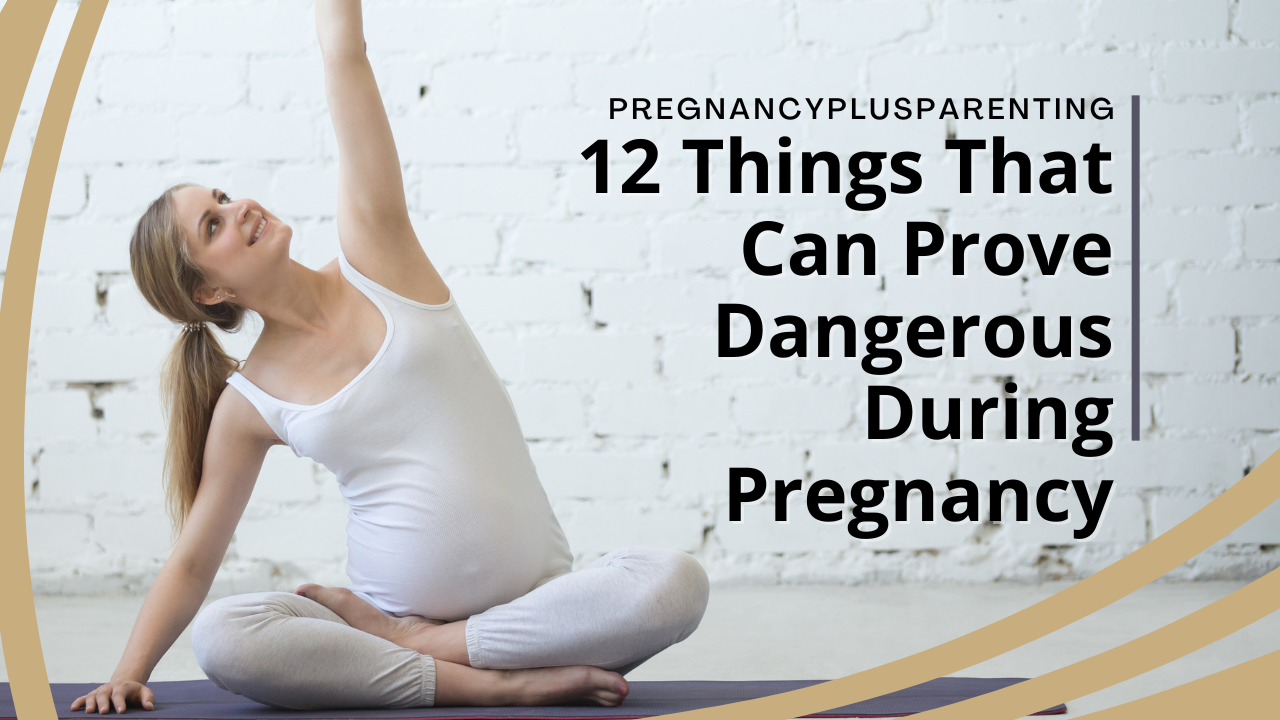12 Things That Can Prove Dangerous During Pregnancy
Pregnancy is a beautiful journey, but it comes with its fair share of precautions. Your baby’s health depends heavily on your lifestyle, diet, and environment during this time. While certain habits and activities might seem harmless, they can pose risks to you and your baby. In this article, we’ll explore 12 things that can prove dangerous during pregnancy and offer tips to navigate them safely.
1. Consuming Alcohol
Alcohol consumption during pregnancy is one of the most well-documented risks for fetal development. Even small amounts can lead to serious complications.
- Risks: Drinking alcohol during pregnancy can cause Fetal Alcohol Syndrome (FAS), leading to developmental delays, learning disabilities, and physical abnormalities.
- Safe Alternative: Stick to non-alcoholic beverages like sparkling water or pregnancy-safe mocktails.
Tip: If you’re struggling to quit alcohol, seek help from your healthcare provider or support groups.
2. Smoking and Secondhand Smoke
Smoking is not just dangerous for you—it also harms your baby. Even secondhand smoke can cause serious health problems.
- Risks: Smoking during pregnancy increases the risk of premature birth, low birth weight, and sudden infant death syndrome (SIDS). Secondhand smoke can lead to respiratory problems and developmental delays.
- Action Plan: Seek support for quitting smoking and avoid smoky environments.
Did You Know? The toxins in cigarettes can reduce the oxygen supply to your baby, impacting their growth.
3. Eating Certain High-Risk Foods
Food safety is paramount during pregnancy. Certain foods can harbor harmful bacteria or parasites like Listeria and Toxoplasma, which are dangerous for both mother and baby.
- Foods to Avoid:
- Raw or undercooked meat, poultry, and seafood.
- Unpasteurized dairy products and juices.
- Deli meats unless reheated until steaming hot.
- Raw eggs or foods containing them, like certain dressings and desserts.
- Safer Choices: Opt for freshly cooked meals, pasteurized products, and thoroughly washed fruits and vegetables.
Pro Tip: Avoid buffets or salad bars where food may sit out for long periods, increasing the risk of contamination.
4. Excessive Caffeine Consumption
While caffeine isn’t entirely off-limits, excessive intake can negatively impact your baby’s development.
- Risks: High levels of caffeine have been linked to miscarriage, low birth weight, and developmental issues.
- Limit: The American College of Obstetricians and Gynecologists (ACOG) recommends limiting caffeine to 200 mg per day—about one 12-ounce cup of coffee.
Alternative: Swap your coffee with decaffeinated tea or herbal drinks like chamomile (consult your doctor before trying new teas).
5. Overexertion and Strenuous Exercise
While exercise is generally encouraged during pregnancy, overexertion can strain your body and lead to complications.
- Risks: Intense physical activity can increase the risk of injuries, dehydration, or preterm labor.
- Safer Activities: Stick to low-impact exercises like prenatal yoga, walking, or swimming.
Tip: Avoid activities that involve heavy lifting, excessive jumping, or balance risks, such as cycling outdoors or skiing.
6. Neglecting Prenatal Care
Skipping prenatal visits can prevent early detection of potential problems. These appointments ensure that both you and your baby are healthy throughout pregnancy.
- Why It’s Dangerous: Missed appointments can delay diagnosis of issues like gestational diabetes, preeclampsia, or fetal growth problems.
- Commitment: Attend all scheduled visits and communicate openly with your healthcare provider.
Fact: Prenatal vitamins are often recommended during these appointments, helping prevent neural tube defects and other complications.
7. Using Certain Medications
Not all over-the-counter (OTC) or prescription medications are safe during pregnancy. Some drugs can interfere with fetal development or cause birth defects.
- Examples of Unsafe Medications: NSAIDs like ibuprofen, certain acne treatments (e.g., isotretinoin), and some cold medicines.
- Action Plan: Always consult your doctor before taking any medication, even common ones like aspirin.
Reminder: Natural remedies and supplements should also be discussed with your healthcare provider.
8. Exposure to Harmful Chemicals
Household chemicals, pesticides, and workplace toxins can pose significant risks during pregnancy.
- Risks: Exposure to toxic chemicals has been linked to miscarriage, low birth weight, and developmental delays.
- Examples of Harmful Substances:
- Paint fumes and solvents.
- Ammonia and bleach-based cleaners.
- Certain hair dyes and nail polishes.
- Safer Choices: Use natural cleaning products or pregnancy-safe alternatives and work in well-ventilated spaces.
Pro Tip: Wear gloves and a mask when using cleaning products or painting.
9. Prolonged Exposure to Heat
Overheating during pregnancy, especially in the first trimester, can impact fetal development.
- Risks: High temperatures can lead to dehydration, dizziness, and even neural tube defects in the baby.
- Activities to Avoid:
- Saunas, hot tubs, and steam rooms.
- Prolonged sunbathing or intense outdoor activities in hot weather.
- Stay Cool: Opt for lukewarm baths and stay hydrated, particularly during warm months.
10. Stress and Poor Mental Health Management
Pregnancy can be an emotionally charged time, and unmanaged stress can take a toll on both mother and baby.
- Risks: Chronic stress may lead to preterm birth, low birth weight, and developmental issues.
- Coping Strategies:
- Practice mindfulness, meditation, or prenatal yoga.
- Share your feelings with a trusted friend or therapist.
- Prioritize rest and avoid overloading yourself with responsibilities.
Did You Know? Positive mental health can improve pregnancy outcomes, reducing the risk of complications.
11. Sleeping on Your Back in the Second and Third Trimester
While early pregnancy allows for various sleeping positions, sleeping on your back later on can restrict blood flow.
- Risks: This position can compress the vena cava, reducing oxygen supply to your baby and causing dizziness.
- Safer Position: Sleeping on your left side is ideal, as it promotes better circulation and reduces swelling.
Tip: Use a pregnancy pillow for added comfort and to prevent rolling onto your back.
12. Ignoring Signs of Complications
Pregnancy can come with unexpected symptoms. Ignoring or dismissing certain warning signs may lead to severe complications.
- Signs to Watch For:
- Heavy bleeding or unusual discharge.
- Severe abdominal pain or cramping.
- Persistent headaches or blurred vision.
- Reduced fetal movements in the later stages.
- Action Step: Contact your OB-GYN immediately if you experience any of these symptoms.
Reminder: Trust your instincts. If something feels off, it’s always better to err on the side of caution.
Bonus Tips for a Safe Pregnancy
- Hydrate: Drink at least 8–10 glasses of water daily to prevent dehydration and support amniotic fluid levels.
- Eat Balanced Meals: Focus on nutrient-dense foods like leafy greens, lean proteins, and whole grains.
- Get Enough Sleep: Aim for 7–9 hours of rest each night to allow your body to recover and support your baby’s growth.
- Stay Informed: Educate yourself about pregnancy stages and risks, but avoid overwhelming yourself with information.
Conclusion
Pregnancy is a time of joy and anticipation, but it also requires vigilance to ensure a healthy outcome. By avoiding these 12 potentially dangerous things and adopting safer alternatives, you can reduce risks for both you and your baby. Always prioritize regular check-ups, listen to your body, and seek professional advice when needed. Remember, a healthy pregnancy starts with informed and proactive choices.






